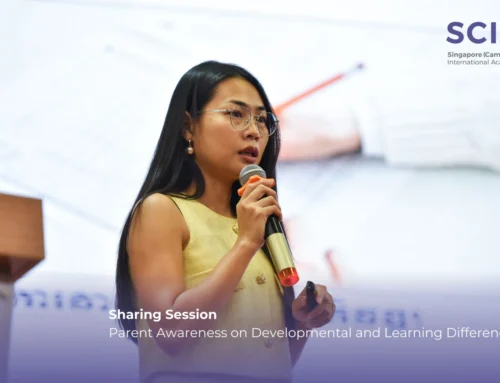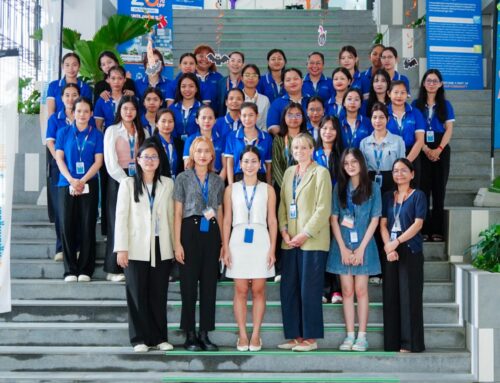The demand for speech therapy in Cambodia has grown significantly as awareness of communication and developmental challenges increases among parents and educators. However, the shortage of qualified professionals remains a key barrier. Training and certifying speech therapists in Cambodia is crucial to meeting the needs of children and adults with communication difficulties. This blog explores the current state of training opportunities, existing challenges, and the pathways to professional development in this vital field.
The Growing Need for Qualified Speech Therapists
As more families in Phnom Penh and across Cambodia seek help for speech and language difficulties, the role of the speech therapist has become more essential than ever. From supporting children with autism and speech delays to helping stroke survivors regain their voice, speech-language pathologists (SLPs) play a transformative role in improving lives.
Unfortunately, Cambodia currently faces a critical shortage of certified professionals. While awareness is growing, the number of universities or training institutions offering formal speech therapy education is still limited. This gap highlights the urgent need for structured training and certification pathways that meet international standards while addressing Cambodia’s unique linguistic and cultural context.
For families seeking professional help, centers such as OrbRom Center in Phnom Penh provide specialized services guided by international best practices. These services ensure that children receive high-quality, evidence-based interventions tailored to their developmental needs.
Challenges in Developing Speech Therapy Education in Cambodia
1. Limited Local Training Programs
At present, there are very few local institutions providing accredited degrees in speech therapy. Most Cambodian practitioners have pursued training abroad in countries like Australia, the Philippines, or the United States. This lack of in-country training programs not only limits access but also slows the development of a sustainable professional community.
2. Lack of Certification Standards
Without an official regulatory board or association for speech therapy in Cambodia, certification and practice standards remain inconsistent. Creating a national certification framework — similar to those used by international professional bodies — would ensure that therapists meet quality standards and ethical guidelines.
3. Language and Cultural Adaptation
Speech therapy materials and assessments are often developed in English and may not always reflect the Khmer language’s structure or cultural nuances. Cambodian therapists and educational institutions must adapt these tools to suit the local context. Centers like OrbRom Center are already working toward culturally sensitive assessment and therapy practices that address these challenges.
Building Pathways for Training and Certification
1. Collaborations with International Institutions
Partnerships between Cambodian universities and established international speech therapy programs can help introduce formal qualifications. Exchange programs, online training modules, and visiting experts can accelerate the transfer of knowledge and skills.
2. Professional Development Through Workshops and Short Courses
Even without a formal degree, current practitioners and teachers can enhance their skills through specialized workshops on topics such as speech delay, autism communication, or AAC (Augmentative and Alternative Communication). OrbRom Center frequently organizes workshops and training sessions to support educators, therapists, and parents in understanding evidence-based speech therapy methods.
3. Government and NGO Involvement
To strengthen the sector, collaboration among the Ministry of Education, NGOs, and private organizations is vital. Joint efforts can lead to scholarship programs, national certification standards, and the inclusion of speech therapy in Cambodia’s public health and education systems.
4. Local Mentorship and Internship Opportunities
Experienced therapists can play a key role in mentoring new graduates or assistants. Creating internship programs within schools, hospitals, or therapy centers offers students practical experience under professional supervision. At OrbRom Center, trainee therapists and teachers gain hands-on experience through real-world interventions, helping them build confidence and expertise.
A Vision for the Future of Speech Therapy in Cambodia
The long-term goal is to establish recognized academic programs and certification pathways that equip local professionals with both theoretical knowledge and clinical expertise. This will ensure that more children and adults across Cambodia have access to quality communication support — from early intervention to lifelong therapy.
Educational centers and private clinics like OrbRom Center in Phnom Penh are leading this transformation. By combining professional development, public awareness, and community partnerships, Cambodia can develop a new generation of speech-language pathologists ready to make a difference.
Conclusion
Training and certifying speech therapists in Cambodia is more than an academic goal — it’s a national priority for inclusive education and healthcare. Establishing structured programs, mentorship opportunities, and accreditation systems will ensure that speech therapy becomes a sustainable and respected profession. As centers like OrbRom continue to bridge the gap through hands-on training and awareness programs, Cambodia moves closer to a future where every child can communicate with confidence and clarity.
For more information about professional speech therapy services and assessments, visit OrbRom Center’s Speech Therapy page.







